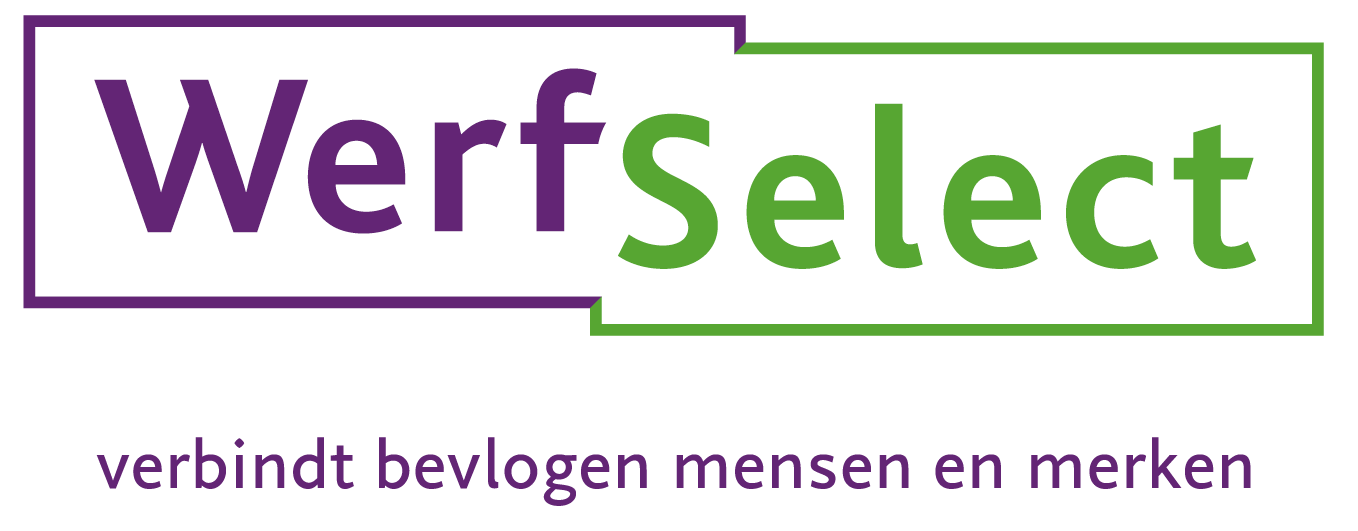
In the series of interviews Inspired people & brands, in conjunction with a publication in FoodPersonality.work coming soon, this time we talk to Josje van Vulpen, Interim Marketing Manager Digital and E-commerce. Decisive, genuinely inspired and socially very strong, we often hear back. A diptych about her career, personal development and how to carve out a niche within digital marketing while this field is still new to you. But also professional insights on effective deployment and cooperation with all parties involved and tips for now and the future.

Josje, just an introduction, how has your career progressed so far? After college, I started working as a brand manager within FMCG organizations. About fifteen years ago I started working on an interim basis and that suits me well. I am an interim marketing project manager at heart. I worked at organizations such as Friesche vlag, JDE, Duyvis, PepsiCo and Shell. There I was thrown in at the deep end in the field of digital. The question was whether I could develop an online recruitment portal and an app. That was eight years ago now. I cut my teeth there and was gripped by the possibilities of online. I knew immediately that I wanted to develop further in that area. I also worked for innovative startup/scale ups. Like an e-commerce organization in automotive (TEVU), an innovator in healthcare (Retter Medical) and an investor in collective renewable energy projects ( Vaanster). At the latter, I worked more as a coach and provided a digital content strategy and calendar. I also worked for BOVAG there it was again more about classical strategic consulting for a while. My penultimate assignment was at SoFine Foods. That was again really a “digital job”; setting up and rolling out digital campaigns internationally. And now I’m back at TEVU for a while. For yet another kind of assignment; shortlisting for new CRM software.
Too many to mention almost. A number of assignments you did through us and we always hear words of praise during evaluation interviews. Even when the organization or department was in the middle of a transition (and others were struggling). What do you think lies in that? How do you deal with uncertainties? I am by nature more goal-oriented than process-oriented. But even if the goal is clear, “bumpy rides” are the rule rather than the exception. You get used to that and take that into account. In addition, you rarely do it alone, but together with the existing team. It is important to me that this cooperation runs smoothly and I pay a lot of attention to it. Getting people on board with the plan/project is really important. That is where the knowledge is. I also like that and am genuinely interested, which also helps. Working together with a multidisciplinary team towards the goal is the best thing there is!
Did looking inside all those kitchens contribute to your development? Yes indeed. But when I started as an interim, I also saw a risk, namely that I would always be invited for the same “brand management trick. That turned out to be unfounded. Partly because I make conscious choices. For example, I don’t stay with an organization for too long. That is still sometimes difficult; the temptation to stay can be strong. But for me it has worked out well to always go for a new challenge and indeed to develop further elsewhere. Every choice contributes to the long term, in my experience. Also in terms of specializing or being more broadly applicable. At one point I did a lot of work on loyalty programs (AirMiles, Douwe Egberts stamps). Then comes the point that you can choose to specialize completely in (digital) loyalty or remain more broadly oriented. I chose the latter; the broader digital marketing/e-commerce work area. From a business perspective, specializing might have been the best choice. But for me personally, that still felt too one-sided and I’m glad I listened to that.
How do you work on your personal development? Do you have any tips for others? Taking courses, trainings, webinars, podcasts (etcetera) is super important. If you look at your resume as a freelancer and you can’t mention any current training/education then you should be embarrassed in my opinion. No time is no excuse. You can also listen to a podcast in the car.
You were gripped by online for eight years you say and wanted to continue in it. You had no knowledge and experience in that field at the time, but still got assignments. How did you do that? And do you have any tips for colleagues who would like to do the same? So my first “online” question came when I was working at Shell. There was a need for a recruitment portal “Working at Shell Stations”, combined with social media campaigns. I also became local business lead for the Shell Motorist App. Then I was asked to work at a Shell startup where fuel was delivered at home. An agile organization where, among other things, I was scrum master. I ended up doing that scrum master training as well. Learned a lot! But was also able to put my experience within FCMG, branding and traditional marketing to good use for the digital piece. It came together nicely. But at the same time, I had indeed never set up a recruitment platform before, nor was I in to app development. So then you have to really want it and really do it! The most important thing is continuous knowledge gathering. You can do that online. On the Internet you can find a lot of training and information for free. Don’t just look at Dutch sites and portals. But also in the US and UK. The training courses and certificates you attended can be mentioned in your profile, so it is clear where your knowledge lies. But perhaps even more important is having a good network where you can inquire. I now have a network of specialists that I can fall back on to retrieve knowledge. In combination with blogs, online training etc. you often (or actually always) get there. And then you start putting it into practice. You really have to get your feet in the mud and get some flying hours. Knowledge and flight hours together makes you build credibility.
And then getting that first assignment, how do you do it? Getting a first job is sometimes difficult yes. But also just ask around in your network. If a manager or owner of a company already knows you and has a good impression of you, he or she is more likely to take the step. Even if you have no concrete demonstrable experience. And if necessary, you can do it voluntarily. What also helps is that within online it is less strange if you have no experience with something yet. It’s simply not feasible to know everything. Every project requires new tools, so it’s not uncommon for someone not to have mastered that particular tool. Of course, you have to tell them that you will be able to do this in no time.
Or the organization engages an agency? You can do that, but even if you work with agencies, you also have to be a good interlocutor. You have to be able to interpret and relate the data. The beauty of digital is that you can back up a lot with numbers. For example, your engagement rate (number of people with interaction divided by the number of impressions), that’s just a KPI. If the agency then calls 3% and you have no idea if that’s a lot or a little you’re delivering yourself over. It’s always a good idea to have someone in house who understands digital or to have someone like that look at it with you.
Often the “online” starting question is broad, in our experience. How do you proceed? Recognizable. For me, too, a project often starts with a global question and need. Online marketing is relatively new for many organizations and essentially different from “classic” brand management. It’s all about performance, data, analytics, KPI’s etc. Conversely, an (Online) Performance Marketer is not a Brand Manager. I have an understanding of both, which benefits me a lot. But also for example a Content Marketer or Social Media Manager has very different expertise. That makes it diffuse, but they really need each other (depending on the phase). It would go too far to go into this in more detail, but WerfSelect already wrote about this*. I always first discuss whether the question fits my expertise and then follow the next steps:
- Where is the organization on the digital ladder? How are they handling customer insights and journeys? What is the state of data & technology? How is the organization structured? Useful tools here are www.builtwith.com and www.semrush.com .
- Identify the quantitative objective of the digital strategy. The organizational and marketing objectives are leading in this process.
- The follow-up analysis and “how-question. Within Food, the purchase also (often) takes place in the store. I work out the See-Think-Do-Care model both digitally and offline (full customer journey). I create a complete plan in which traditional and digital communication, retail e-commerce, store floor activation and packaging all play a role.
- Then “test, learn & adapt” begins.
E-commerce is quite often invested in sales. Is that a good idea do you think? Retailers offer interesting e-commerce and digital communication opportunities for manufacturers and suppliers. This also requires digital knowledge. Therefore, I would certainly not put it solely in the hands of sales. An intensive collaboration of sales and digital is necessary. Take estimating cost/benefit. Most account managers/trademarketers are not familiar with CPMs or CTRs. So how do you make an informed choice? In addition, you see social media, traditionally the field of the digital marketer, developing more and more into a sales channel. Certainly in non-food also an area where sales and marketing need to find each other.
Do you have any overall tips for better collaboration of parties involved in digital and e-commerce? Normally I would say “put people together physically. But of course that is difficult in this day and age. What does help is if brand management/marketing fall in the same “line” as digital marketing. Share your digital campaign results, website reports with your marketing and sales colleagues. And don’t go overboard with technical terms but explain in a simple way what it is and what happens. Little things like that can help. But certainly also make sure that at the start, in the briefing of communication and activation, the digital side is included immediately.
And are there any learnings on the online front that you would like to share? So much! Take the “Test small, scale fast” principle. An essential mindset in digital. Test small, measure and then continue to develop or stop. And in digital, consumers are constantly in different stages of the funnel. You can therefore guide your target audience through the funnel with retargeting tactics. This does mean setting up all stages and running them continuously; so-called “Always On” campaigns. And market research is much easier. Via FB/Instagram you can easily poll your fan base. Or through your website with www.hotjar.nl for example. That is free. And many other tools as well.
Finally, what opportunities do you see in the near future? QR codes had been around for a long time, but have now been accepted by the masses through Corona. There is great potential here to link the physical world to the digital world. QR codes on in-store materials, packaging, physical retail leaflets etcetera. This will only increase the importance of the website for food brands within the communication tunnel. But not only in terms of communication/branding. Through the QR code on the billboard at the bus stop, to the product page of the website directly to the e-commerce basket of the retailer you can set up tomorrow as a food brand. Apart from Covid-19, within media you obviously see a big shift to digital media. When building awareness, traditional media certainly remains effective, but then also elaborated directly from a digital perspective. And there is a growing range of new digital opportunities; influencers, peer-to-peer platforms, etc. Take advantage of those. But all this from a clear positioning of the brand. And that brings you back to the basics of brand management. And that’s where the added value lies if you have experience in both areas. Also keep an eye on the developments around third-party cookies. Before you know it, it will be 2023. Make sure you have “owned” media such as your own website where you collect consumer data. If you set it up right in terms of personalized content, email is far from dead in my opinion. E-commerce of retailers, new players like PicNic, Crisp. With this new form of retail, for example, a new discipline is emerging: digital trade marketing. How to make sure your brand is at the top of these webshops/apps, which campaign works and which doesn’t. But also partnerships with new parties such as Hello Fresh or Food Service parties offer great opportunities to build your brand both online and offline. Thank you Josje for sharing your knowledge and insights. Best of luck with your wonderful assignments! By Annelies Ruis, owner WerfSelect NB. Part of this interview is included in a publication in FoodPersonality.work, September 2021 edition. Appearing soon. * https://werfselect.nl/inspiratie/welke-online-marketing-ervaring/






